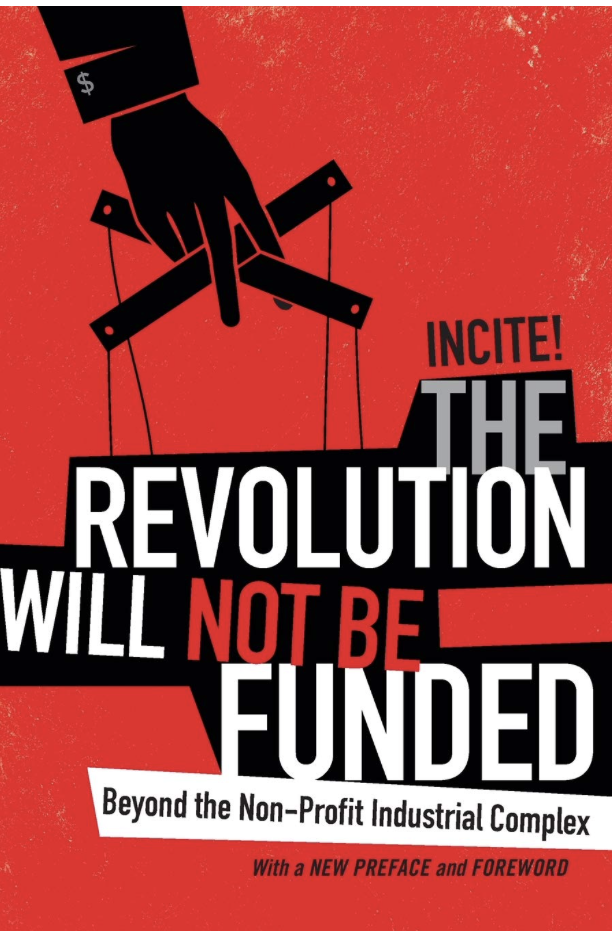The Revolution will not be funded: Beyond the nonprofit industrial complex
INCITE! Women of color against violence produces a necessarily thought provoking collection of essays
"The Revolution will Not be Funded: Beyond the Nonprofit Industrial Complex" is a compelling, thought-provoking book that challenges conventional understandings of nonprofit organizations and their roles within social change movements—compiled by the collective, INCITE! Women of Color Against Violence, this book is an anthology of essays presenting a critical perspective on the nonprofit industrial complex (NPIC), its foundations, and its implications.
The book effectively argues that the NPIC, composed of private nonprofits and other institutions, plays a significant role in managing and controlling dissent, subduing grassroots revolutionary movements. The premise is radical - the organizations' society assumes are working for systemic change might be preserving the status quo.
The anthology covers various topics, including the history of nonprofits, the impact of funding sources on organizational behavior, and the subtle shift from radical, grassroots activism to professionalized, corporate-style organizations. This diverse array of perspectives offers readers a comprehensive understanding of the NPIC and its impact on social change movements.
Despite its revolutionary stance, the book does not fail to present alternative strategies to address the issues identified. In the final sections, authors give their thoughts on possible routes to liberation from the NPIC, including building coalitions outside the NPIC, grassroots organizing, and exploring alternative funding models.
A strength of "The Revolution Will Not Be Funded" is its authentic representation of diverse voices and experiences. The authors include women of color, activists, scholars, and nonprofit workers, thus providing readers with various viewpoints. Their narratives are personal, emotional, and steeped in lived experiences that lend credibility to their assertions and resonate with the reader on a deeper level.
On the other hand, the book's perspective might only resonate with some. Some might argue that it overgeneralizes or oversimplifies the workings of the NPIC, thereby misrepresenting the nuanced reality of many nonprofit organizations. Furthermore, while it offers alternatives to the NPIC, it does not provide a step-by-step blueprint for transitioning to these alternative models.
In conclusion, "The Revolution Will Not be Funded: Beyond the Nonprofit Industrial Complex" is a crucial book for anyone in social justice work, particularly those in the nonprofit sector. Its exploration of the nonprofit industry from a critical perspective invites readers to question their assumptions and reevaluate their strategies. While it may not provide all the answers, it certainly sparks a necessary conversation about the role of nonprofits in effecting systemic social change.


